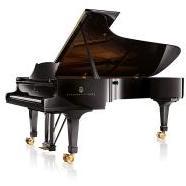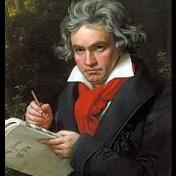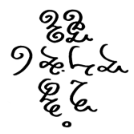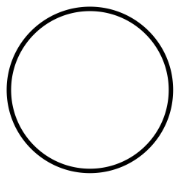Leaderboard
Popular Content
Showing content with the highest reputation on 04/24/2020 in all areas
-
https://www.youtube.com/watch?v=oAmITPAIduk&feature=share Here is my version of Ave Maria.1 point
-
The title says it all: a few days after posting this fugue I seeked for and found some parallels, so I corrected them. I wasn't sure whether I should repost (which I'm doing right now) or simply let them slide past my mind. But I recently realised they were too obvious, which might be the reason why no one has replied since I posted the fugue. Also, I changed the instrument in the soundfont I'm currently using for the computer to play what is supposed to be a Reed Organ, despite I don't think the timbre is comparable to the real instrument, I guess it sounds nice. So it might sound like it's played by some sort of unspecified wind instrument. Hope everyone, quarantined or not, are safe and resisting the devastating effects of this epidemic so far.1 point
-
So, up until now I've mostly written in an overtly Classical style, and that was perfect style for me to learn and grow in over the years, owing to its relatively simple forms and my general preference for that era. However, I'm aware that writing in old styles is often perceived as stale, unoriginal and not innovative. And so we come to present day and I feel like I am in a place where I can be more creative and take risks, but I'm at a bit of a loss as to where to go from here? As I see it, I could stick with the Classical and continue to develop that, or I could try out later styles. I just don't see how or why either of those options is better or more valid than the other!? The reason I say that is, despite the general bias against the idea of modem composers writing in decidedly old styles, personally, I think there is still much to be said about the inherent value of the work in and of itself. If the Jupiter symphony was released now by someone instead of WAM, would its modernity be a flaw? Simply put, I think that music can be good, even if it lacks originality. The fact is, people enjoy these old styles that many of us write in, and I feel that is worth the effort. However, despite my own personal belief that these works in old styles still have value, I can't ignore the fact that many people don't value such works in the same way and ultimately, I'm sure we all want others to value our music. So, this all just leave me confused as to what i should do next. I've started to move away from strictly Classical works with the beginnings of a little nature series, but I'm already starting another Classical piece. However, now, I'm questioning the value of it all? What do you think? I'd welcome the perspective of all, those who are in similar positions but also those who aren't Best, Dan1 point
-
"Originality" is not actually an inherent virtue; what most people actually mean when they say "originality" is a "my signature style". Well, everyone has that provided you're not specifically trying to sound like another composer. Not that I am accusing OP of this — I have not heard his music — but it's my experience that a lot of the time, people try to use the fact that they're "original" and "different" to make up for the fact that they're not actually very good. Because then, you can make the argument that everyone who doesn't like it, simply "doesn't get it" or whatever. You see this a lot in "art music". Schoenberg and his underlings were pretty original, what with the serialism and all. What do they have to show for it? A large body of work that is mostly ignored by the world and even fans of the technique admit can be "difficult to listen to". A friend once told me about this conductor who told him what I think is probably one of the truest things I've ever heard about music: "The further that your music is from folk music, the less listenable, popular, and likeable it will be." The reason that hits so hard in regards to this topic is that inevitably, truly "original" pieces must eschew the aesthetics and techniques that — over many centuries — have come to be the norm because they are what most people find to be desirable qualities in music. Like it or not: The list is finite. You will notice that the most-enduring classical pieces are either highly-similar to folk music of the day (Bartok literally made arrangements of them) and 20th Century pop music. Throughout the 20th Century, basically everyone was granted access to art music via recordings and post-war economic booms and guess what? Almost all of that deeply-original "art music" that was written over the least few hundred years went the way of the dodo. Why? Mostly, because most people didn't like it. Why? Because — and I know this will make a lot of people made, but it's the truth — most of it was never actually very good to start with. So If people like what you're doing, you like what you're doing — then there is no need to be worried about how "original" you are. But if you're getting bored with the classical style, just try doing another for a while. I've done everything from Metal to Pop, to Folk, to Romantic pieces to sad piano pieces. It's only music — no need to make this $H!t stressful and complicated.1 point
-
This. Really, I'm in the same situation as you (although I am a Romanticist rather than a Classicist). The thing is that the vast majority of musicians I've spoken to prefer to go to a concert and listen to Mozart or Rachmaninoff than to go to see a world premiere of a new piece. Why else do orchestras continue to perform the old masterworks? I still can't bring myself to write anything particularly contemporary, despite repeated exposure and professional composers introducing me to it. Aaaaaaaaaaaargh you mentioned originality! The one word that compositional society imposes on us! Let me get this straight: the Oxford dictionary defines 'originality' as "the quality of being new and interesting in a way that is different from anything that has existed before." Are you directly plagiarising? No? It's original then. That's my view on people who call us Classicists/Romanticists unoriginal. The problem does not lie in our music - it lies in society and the general oppression of our music by those who write "music for the modern world." Keep writing Classically, unless of course you decide to change your style. But remember, no one else can make that decision for you.1 point
-
@Guillem82, feliç Sant Jordi, com sempre una peça bonica. No és que tingui molt coneixement de com escriure per a coral així que l'únic que puc dir és q m'ha agradat molt. Definitivament un bon regal per celebrar aquest Sant Jordi.1 point
-
Now would be a good time to learn how harp pedals work. For each note in 0#DIA, they can be shifted up and down a semitone. It takes some time to do this, and is better to have notated on the score. You can look up examples of the standard way this is done.1 point
-
This piece shows real improvement! The ideas are much more clearly presented, and are really pleasing to listen to. It all just adds up to a sweet-sounding little piece. I guess writing a piece for a small formation was really fruitfull for you, and if you want to go back into writing pieces for orchestra I would recommend slowly building up to small ensembles, than finally getting to a full-blown symphony orchestra or symphonic band. Perhaps this style in which you composed would benefit from not having chords such as the on on 4th M, 6th M, and so on. Perhaps you could add a different accompaniment figure in those moments, something like a small tremolo. It would make the whole thing sound a bit smoother, making so that when you do use chords like that, you would have a much more relevant-sounding cadence. This is just feedback, though, so it's just a matter of opinion.1 point
-
First off, this: You wrote an entire symphony for your GCSE!? I've just finished my Nat 5s (Scottish equivalent) and the requirement for composition was nowhere near what you've done! Next thing: wow! Great job overall. I'll pick out a couple of things that I've noticed. 1: Watch out for having your wind instruments in range extremes. Bar 5 on the 2nd oboe goes down to a low C which, even in the hands of the most capable performers sounds a bit honky. Incidentally, it would be good to have in the very last bar. Also, you're running a risk with the low C in the double basses at the start. The standard range is only down to an E. Unless you know that all of the bassists in an orchestra you were writing for had C extensions, it's safer not to write for it. 2. The orchestration does just feel a bit sparse overall. Experimenting a bit more with orchestral texture and looking at scores for orchestral pieces that you like can help you with this. I've noticed that there are a lot of rests - not necessarily a bad thing, but the texture feels too thin. 3. Are you aware that from Bar 219 onwards, there are full G chords in the winds, but every time there is also a Bb in the strings? Doesn't sound quite right in the context of the piece, but a tricky one to sort out. Keep composing!1 point
-
Maybe you control clicked them? I find that if I have multiple movements or scores in general and I want them to show in a certain order, I just click each individual movement, no ctrl click involved and it works for me.1 point







